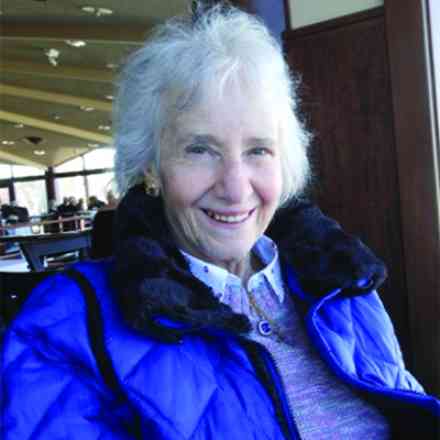Written for a young woman painter, Alexandra
A sensuous Latin poet, now I will go off with a thermos
of coffee, and book of Virgil.
Laughing suddenly, strike a match but the flame’s blown
out by desert wind.
Then I hold my head in my hands
with the ridiculous joy of the whole thing:
Young girl, you have made life
joyful again.
(From silence one comes—to it, returns.)
The aspens! each trembling branch
undone
by halo around the young leaves in the year’s mature sun.
All artists
are aged
in compassion.
I am not so capable of Platonic love as it seems
especially now they are suddenly burning piñon
in New Mexico evenings.
Oh love that sustains!
for which I burn: Love that draws the tiredness from,
strong hands on a back, to sleep without pain.
So I turned mean?
said you were young:
It was the earthy gutsy mark of longing:
Salt, the sweat: THE TRUE MARK.
And she will not die whom I loved. I’m unstrung:
It’s dirty luck, that old bird.
But somenight I’ll creep up in dark old raincoat
lay hands on you,
and wheeling round you’ll suddenly know I seek you.
I’d pass thru dark train windows;
I’d press the monkish curls back from your cheek
molding a statue, instead of hacking poems out of love.
Van Gogh love!
young Russian! What are we to become who are
idealized even in passion?
I kiss lips paler than …
I touch a forehead in dream, thought springs from.
I hold hands—nervous and young. First aspen.
This is where sorrow begins.
***
Apology. Hand shaping air;
holy smell of wood, the mathematical certainty
in your studio-kitchen:
balance of numbers,
beatitude of oil,
steady adding
steady breathing in marriage in your home.
As to mine? feet moving thru memory.
Life is infinite subtraction:
Oh I can bite the orange rind
well as the next man.
But my palms shine.
I cannot wait till the aspens fall,
leave off being gold,
we may grind them underfoot like crushing out cigarettes.
Not cry
how we might have held
the cup more to our lips.
Sweetheart there is a brown wind here.
It will sink with the monotony of the passing year.
The words choke in my mouth
as if my hair were blown backward by that wind
which drove you to me,
which drove you to find me.
Neither by my poems nor your art will anyone ever be
quite able to explain our affair.
But it glows in sun (like the little hounds
released from hunt):
It is warm, it is here—
stretched out, relaxed by the fire.
You will rise at night
to brush back your monkish hair,
and perhaps tone down the color of the girl’s cheek
in the picture. I may temper my poem, not so tender.
But today, I would have struck
the first aspen from earth to bring you, in its original flame:
Passion—Has it any other name?
***
Sapphic Love! Sculptress of far more than stone. Alex.
“I love everything about women . . . .”
I love to watch water receding from stone, after the storm
leaving the pure form:
Nervous, earthly woman, you are reaching now
to the marrow of my bone.
Editor’s note: Originally published in Rising Tides: 20th Century American Women Poets edited by Laura Chester and Sharon Barba (Pocket Books, 1973) and reprinted in I Hear My Sisters Saying: Poems by Twentieth-Century Women edited by Carol Konek and Dorothy Walters (Thomas Y. Crowell Company, 1976).

